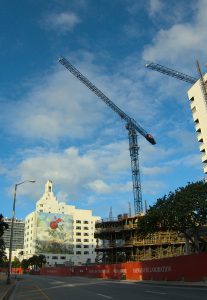 Florida’s civil liability and workers’ compensation systems handle legal matters for people injured or who have died in accidents. The systems have some similarities and differences. The biggest differences are that the plaintiff must prove fault to recover under civil law, and recoveries for non-economic damages (such as pain and suffering) are not available in workers’ compensation cases. It is not always obvious which remedy route is the best to follow. Most of the time, the aggrieved party does not have a choice.
Florida’s civil liability and workers’ compensation systems handle legal matters for people injured or who have died in accidents. The systems have some similarities and differences. The biggest differences are that the plaintiff must prove fault to recover under civil law, and recoveries for non-economic damages (such as pain and suffering) are not available in workers’ compensation cases. It is not always obvious which remedy route is the best to follow. Most of the time, the aggrieved party does not have a choice.
Employers and fellow-employees are immune from civil lawsuits for work-related accidents. See sections 440.10 and 440.11, Florida Statutes. In other words, the workers’ compensation system is the harmed individual’s exclusive remedy.
Exceptions arise when the employer has failed to secure the payment of workers’ compensation (440.10(1) and 440.11(1)(a)), the employer commits an intentional tort (440.11(1)(b), or the fellow-employee acts with willful and wanton disregard or unprovoked physical aggression or with gross negligence (440.11(1)).
Another exception may apply when 1) the employer makes a representation of a material fact that is contrary to a later-asserted position; 2) the harmed worker relies on that representation; and 3) the worker is damaged by changing his or her position in reliance on said representation. See Specialty Emp. Leasing v. Davis, 737 So. 2d 1170, 1172 (Fla. 1st DCA 1999) (quoting Dep’t of Revenue v. Anderson, 403 So. 2d 397, 400 (Fla. 1981)). This exception is known as equitable estoppel.
In McNair v. Dorsey, 291 So.3d 607 (Fla. 1st DCA 2020), McNair was injured while carrying a tree branch to a wood chipper. The employer first asserted that there was “no compensable accident.” In a later pretrial stipulation, the employer claimed that no compensable accident occurred, and took the position that McNair’s accident did not occur within the course and scope of his employment.
 Florida Injury Attorney Blawg
Florida Injury Attorney Blawg



